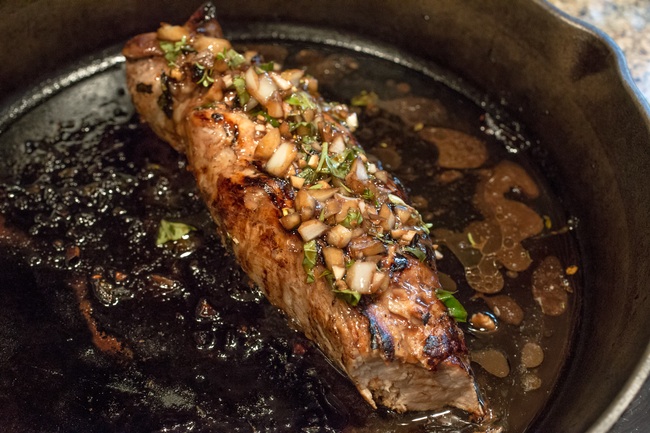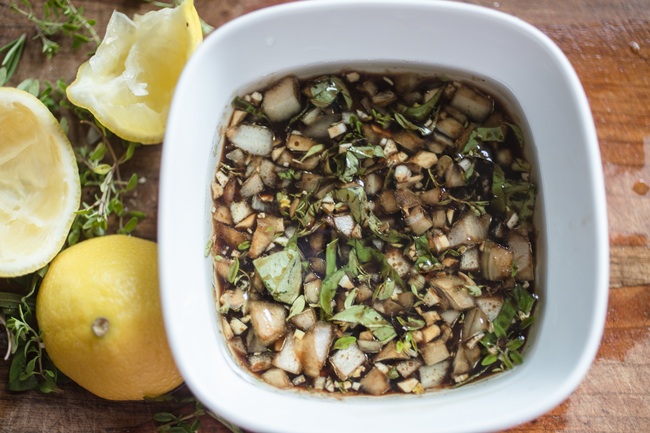Mixing up marinades at home is both simple and rewarding. Fresh ingredients create flavors that are zingy, mouth-watering and exciting; the kitchen becomes filled with the refreshing scent of chopped herbs and lemon; and there is no longer a need to squint or put on glasses to scan labels or review tiny ingredient lists on the side of a bottle. Homemade marinades don't have to be works of culinary art either—in fact some of the most basic recipes will add the best flavor. Take this simple herb and lemon marinade for example. With balsamic vinegar, a handful of basil and a squeeze of citrus, it brings a bright, savory flavor to almost any meal.
Marinade Making 101
The basic formula for any successful marinade goes something like this: fat + acid + spice. The fat, optimally some variety of hearty oil like melted ghee or olive oil, helps to provide moisture and flavor. The acid portion of the marinade, such as vinegar or lemon, helps to both penetrate and tenderize the meat. The spice, which can include any combination of herbs or condiments, adds a bit of flair and fun to the recipe. Once you have this formula down, it is easy to whip up and customize marinades based on the ingredients you have at home and the style of dish you are going for.
For example, for this herb and lemon recipe we have:
olive oil + lemon, balsamic vinegar + basil, thyme, onion, garlic.
It is important to emphasize here that olive oil and polyunsaturated vegetable oils like canola, soybean or safflower blends are not interchangeable in this or any other marinade recipe. Although refined vegetable oils can be seemingly convenient due to their long shelf lives, high smoke points and minimal costs, they are simply not well suited for high temperature cooking (or any cooking for that matter). When exposed to excess heat or light, these fragile fats undergo an oxidation reaction that produces free radicals. When consumed, these fractured, free radical fatty acids can trigger an inflammation response in the body. In general, opt for fats that are mono-unsaturated (like olive oil) or saturated (like coconut oil or ghee) as they are overall more structurally stable and can withstand changes in temperature without breaking down in this way.
Timing It Right
In order for a marinade to do its work and impart the fullest, most robust flavor in a dish, substantial soaking time is required. I've found the easiest method for doing this is to place meat in a large bowl and pour the marinade over it, then cover and set in the refrigerator. Glass bowls work best as the acids in the marinade will readily react with plastics and some metals, potentially leeching toxic components into your meal.
The following list provides some guidelines for marinating times. Essentially, the tougher the cut of meat, the longer the marinating time requirement will be.
Veggies: 20 minutes
Fish: 30 minutes
Poultry: 1-2 hours
Beef and Pork: 2 hours-overnight
If you are in a hurry or find yourself way too hungry to hold off dinner for even another second, don't fret. Covering a meat with a marinade quickly before cooking will still greatly improve the flavor and aroma of the dish. My favorite method for these rushed situations is to use half of the marinade to cover the meat before cooking and then use the other half as a sauce on top right before serving, as I've described in the recipe section below.
Let's give it a try!
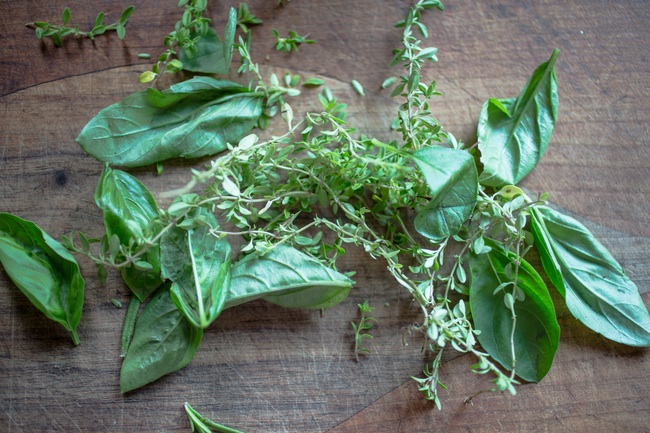
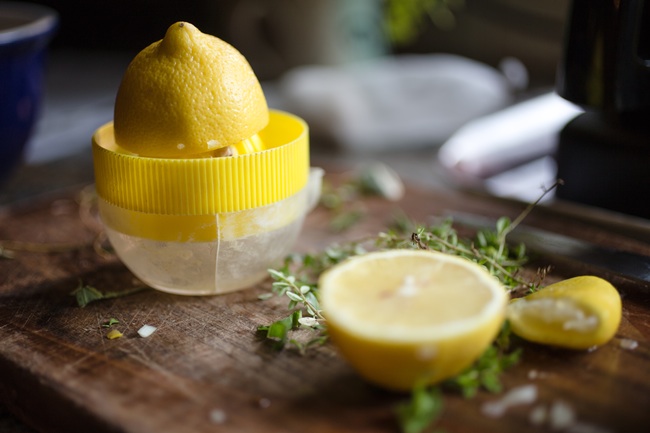
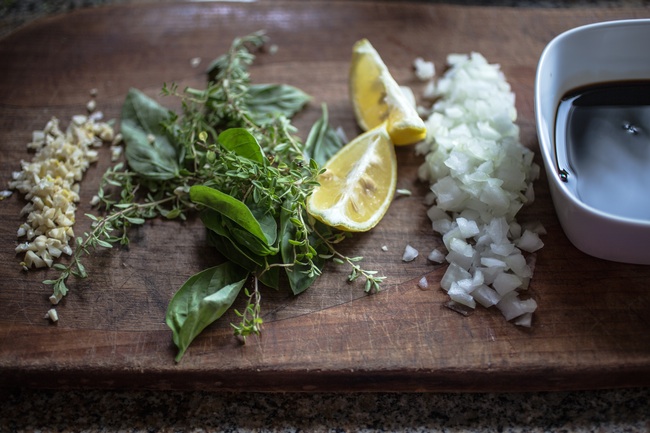
Fresh Herb and Lemon Marinade
Ingredients
3 garlic cloves, minced
2 tbsp finely chopped onion
3 tbsp chopped fresh basil leaves
2 tbsp chopped fresh thyme leaves
2 tbsp balsamic vinegar
1/2 cup unrefined olive oil
2 tbsp fresh squeezed lemon juice
Freshly ground pepper
Instructions
Add all ingredients to a medium sized bowl and whisk with a fork to combine. Use half of the blend as a typical marinade, covering up to about 1.5 pounds of meat (I have found that this particular marinade pairs best with chicken and pork). Massage marinade into the meat, cover and place in the refrigerator for at least 20 minutes prior to cooking. Use the oven or grill to cook the meat through, then pour the remaining half of the marinade on as a sauce just before serving.
